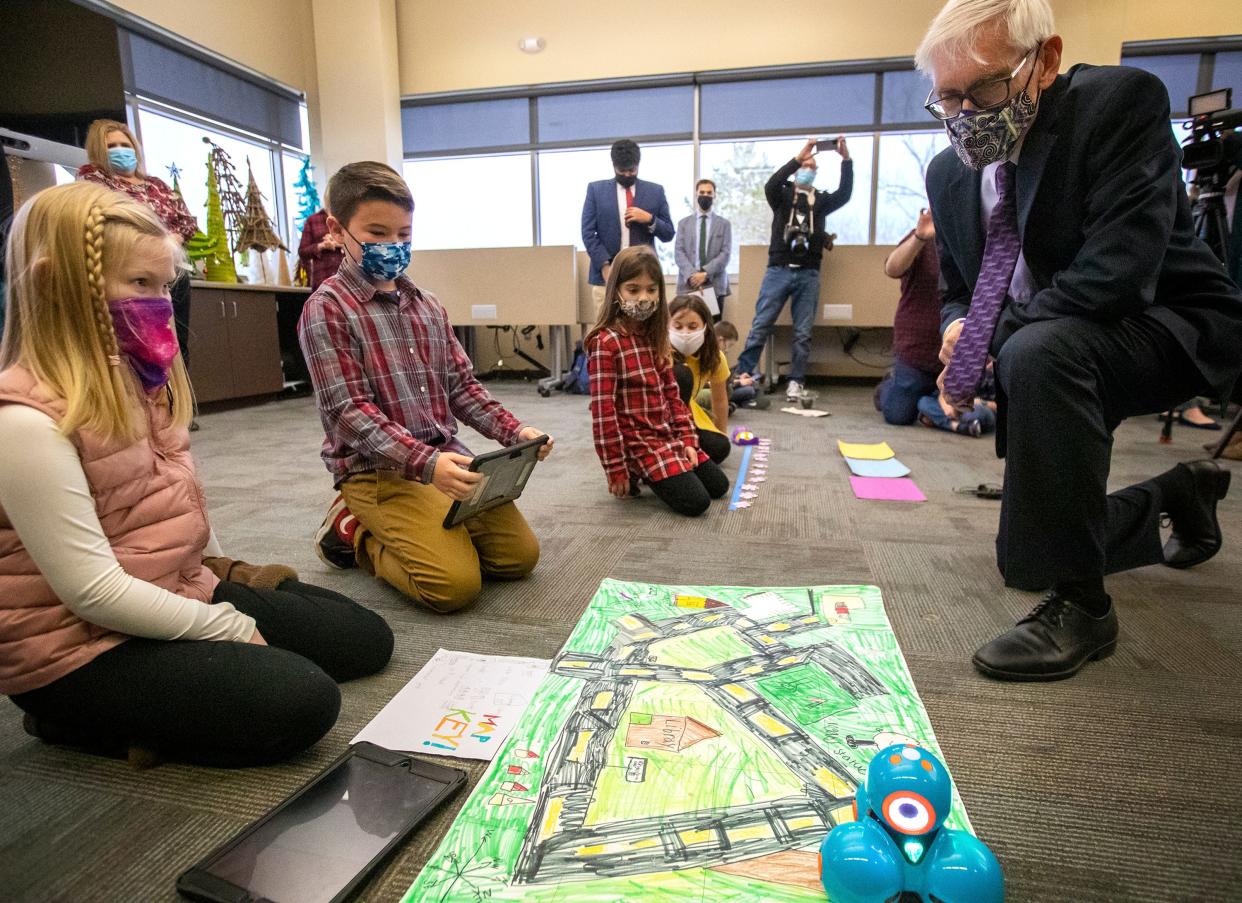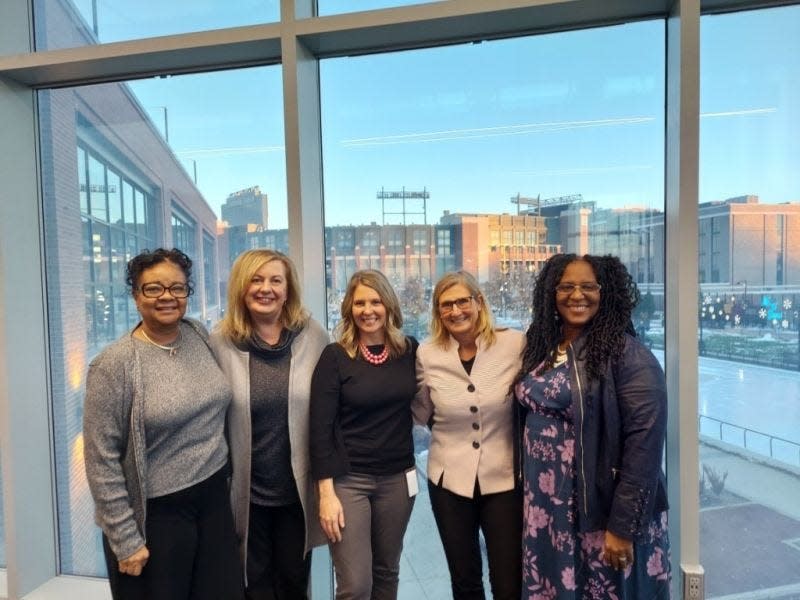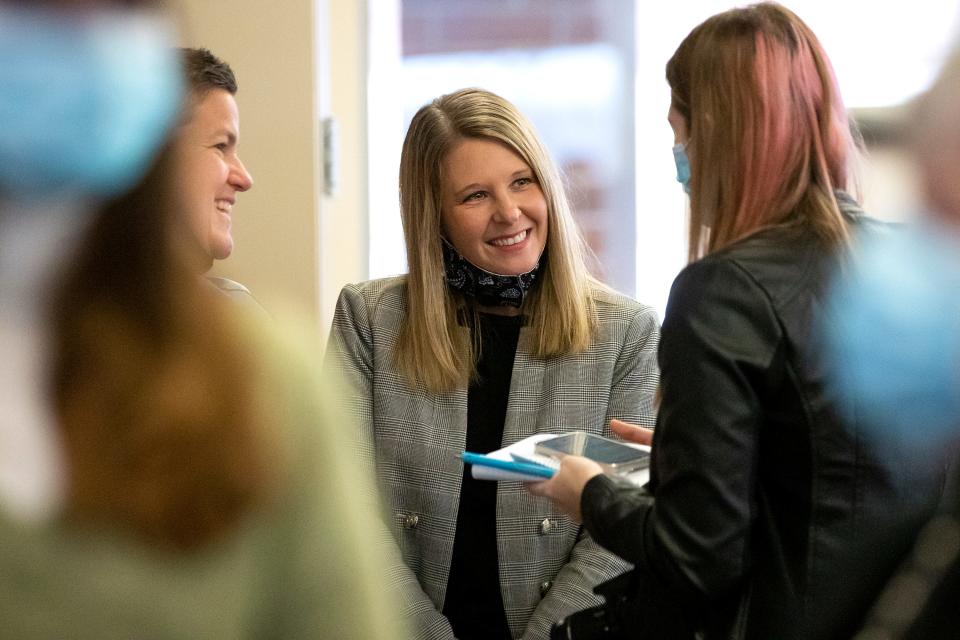Microsoft expands digital jobs program with Green Bay-area roots to all 50 states

A Microsoft Corp. initiative to increase computer science education and digital job opportunities will expand beyond its northeast Wisconsin roots into all 50 states this year.
The company announced the expansion in a blog post this morning that notes while talented people are everywhere, opportunities are not.
TechSpark launched in 2017 to help smaller metro areas develop computer science classroom lessons for K-12 students and retrain existing workers for jobs in demand among local and national employers.
The company plans to take what it learned in pilot programs in northeast Wisconsin; southern Virginia; central Washington; Cheyenne, Wyoming; Fargo, North Dakota; Jackson, Mississippi; and the El Paso, Texas-Ciudad Juarez, Mexico border region; and offer the same resources to communities across the United States.
What is TechSpark?
Information technology companies cluster in Silicon Valley or Seattle, but there are workers in Green Bay or Fargo who need digital skills and employers who need technically skilled workers.
TechSpark develops tailored support to smaller cities and metro regions. It brings regional business, education and community leaders together to identify digital skills gaps and an action plan to address the need. Microsoft hired a TechSpark director in each pilot region to help foster collaboration.
To date, it has generated $125 million in public and private investments in computer science education and worker training across the eight pilot regions, trained 50,000 people in a variety of digital skills, found 3,300 workers jobs, trained 1,100 teachers in computer science lessons, and supported hundreds of startups.

Communities can find a playbook and resources
Michelle Schuler, northeast Wisconsin’s TechSpark director, said communities will find an introductory webinar, resources they can use and a sample “playbook” of how the pilot regions identified needs and developed programs to address them. From there, communities might pursue in-person events and begin working with a TechSpark mentor on more extensive participation.
“There’s excitement for all of us community engagement managers to take the lessons we’ve learned and help other communities think about their journey,” Schuler said. “Every community matters.”
How will this work in different states?
What Schuler plans to share with communities is that they will need to collaborate and act together to address their needs. She said Microsoft can provide resources and assist regions with their journey, but that leadership, and the action plan, need to be locally derived.
Microsoft plans to identify a local organization in each state to serve as a partner and supply a grant to fund a "TechSpark Fellow" to spearhead local, partner-driven efforts. The national program will focus on four key issues:
Improve digital access by building out broadband infrastructure.
Develop computer science education for local schools.
Teach people digital skills.
Help nonprofits, startups and small businesses leverage technology.
How did it help northeast Wisconsin students, schools?
Northeast Wisconsin is home to about 1.2 million people centered in the Green Bay and Appleton areas and a variety of industries including health care and manufacturing. Brad Smith, Microsoft's president, spent his high school years in Appleton. Local leaders identified computer science lessons for K-12 students, more IT higher education opportunities, and retraining programs for current workers to meet local workforce needs, like software developers and data analysts.
Local teachers and community leaders say the K-12 lessons and mentorship programs have sent a clear message to students that “opportunities are available" here, that students don’t have to leave their hometowns for good-paying, family-supporting technology jobs. The lessons, teacher training and programs are now available to 38 school districts in the region and raised $500,000 in grants from local businesses, Microsoft and community foundations.
On Tuesday, Gov. Tony Evers indicated his proposed 2023-25 budget includes $5 million annually in grants for school districts to increase access to computer science lessons and a requirement that every Wisconsin high school provide at least one computer science course.
“Already things that have started in the TechSpark regions have expanded to other parts of Wisconsin and beyond,” Schuler said. “Wisconsin is also learning from other TechSpark regions.”

How do workers get help finding tech jobs?
Microsoft partnered with Milwaukee-based venture capital firm gener8tor in 2020 to launch a skills-based retraining program now called Skills Accelerator in northeast Wisconsin.
The program paired people with a mentor and offered courses in digital basics as well as more specialized learning modules. Participants do not have to pay for the training.
It worked with Black, Latino and Asian community leaders to increase access to the training program among the region’s growing minority population, groups historically underrepresented in computer science and technology job fields.
Through early 2022, 102 people in northeast Wisconsin enrolled in the program with 77% graduating and 66% moving on to tech-related jobs. Forty percent of those graduates are women and 35% were people of color.
Much like TechSpark is going national, gener8tor expanded Skills Accelerator programs into 21 cities and regions.
Contact Jeff Bollier at (920) 431-8387 or jbollier@gannett.com. Follow him on Twitter at @JeffBollier.

CONTINUE YOUR SUPPORT: Thanks to our subscribers for making this coverage possible. Be sure to download our app on the App Store or Google Play. Follow us on social media: Facebook | Twitter | Instagram | Newsletters
This article originally appeared on Green Bay Press-Gazette: Microsoft expands digital jobs program with state roots to all 50 states

